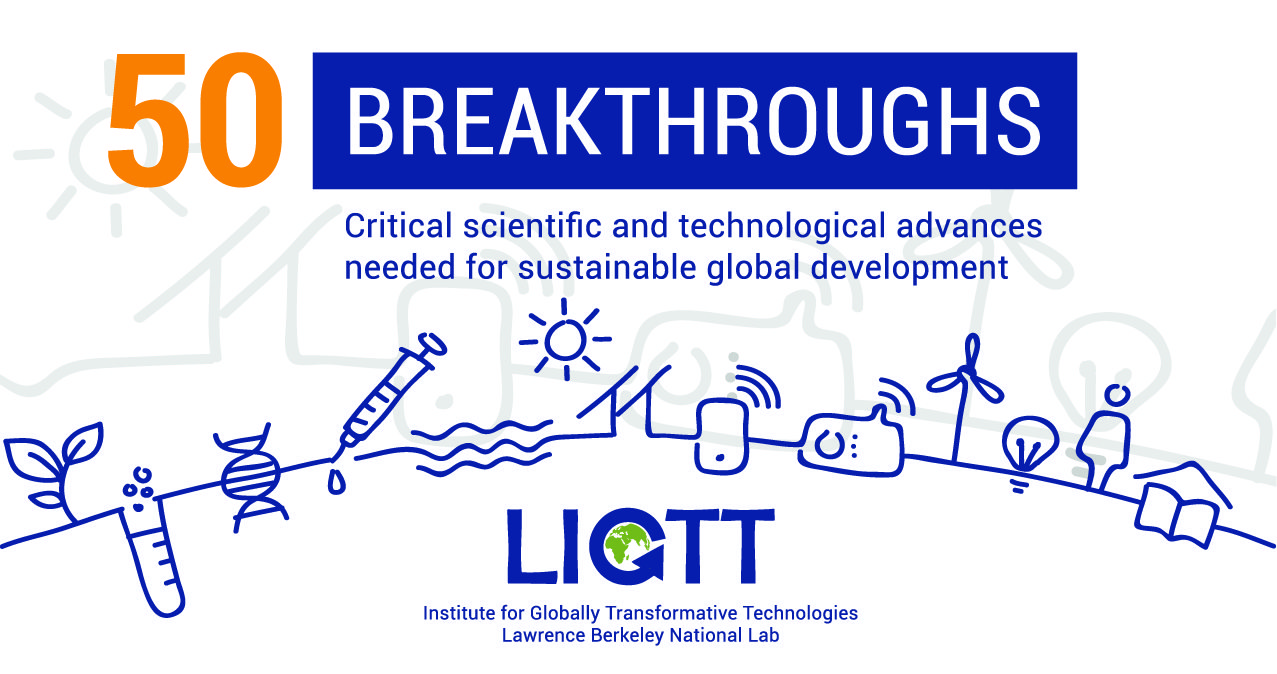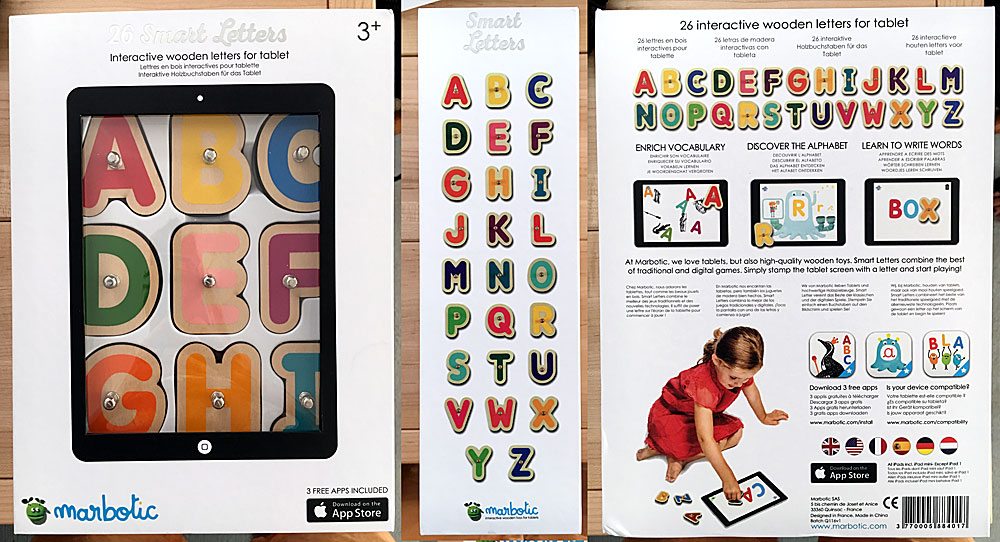
Since the polio vaccine was introduced in the 1950s, one of the most dreaded diseases in history has been all but eradicated. Are there other scientific breakthroughs that could have an equally transformative impact on global human development, and if so, what are they?
When Lawrence Berkeley National Laboratory’s Institute for Globally Transformative Technologies (LIGTT) tried to answer this question, it found there were no good answers–or too many answers. So LIGTT director Shashi Buluswar assembled a small team and set out to identify the world’s most-needed game-changing technologies.
– from Berkeley Lab’s List of Top 50 Game-Changing Technologies for Defeating Global Poverty
Pretty inspiring, right? “Find a need and fill it” is common advice usually given to budding entrepreneurs and inventors, but it’s not often that someone hands you a concise list of needs to fill that will really help people. LIGTT’s report does just that. So how do we start crossing things off that list?
Of course we can donate to organizations working on new HIV treatments (#13, 14) or cures for Malaria (#15), or sit back and watch as really smart people (some of whom work at Lawrence Berkeley National Laboratory, and one of whom is my brother-in-law) develop and refine devices for preserving vaccines during transport to folks living far from the grid (#23, 24). But what about the other stuff? There are lots of smart people working on that, right? And there’s no way we’re going to think up something they haven’t already, is there? As Mark Twain said:
There is no such thing as a new idea. It is impossible. We simply take a lot of old ideas and put them into a sort of mental kaleidoscope. We give them a turn and they make new and curious combinations. We keep on turning and making new combinations indefinitely; but they are the same old pieces of colored glass that have been in use through all the ages.
? Mark Twain, Mark Twain’s Own Autobiography:
The Chapters from the North American Review
Those words have been used for everything from to reassuring discouraged songwriters to justifying plagiarism, but the point he makes still rings true: of course we’re all just rearranging things. But I think Twain downplays the “new and curious” like it’s not a worthy pursuit.

The difference between Twain’s world (sorry about that) and today is that we have an infinitely greater ability to dabble, to explore, to pursue areas of discovery: we can charge into a discipline armed with more information than any amateur in history has ever had access to. Sure, some of it is spurious, a lot of it is gibberish, but the rest either comes from really smart expert-types, or fellow amateurs with their own tales to tell. Beyond that, we get to see the innovations of folks who are improving their lives by making things out of necessity, using pieces that are cheap or free (like this and this and this). And many of the items on LIGTT’s list begin with the words “low-cost.”
 This got me wondering if some of the silly DIY projects I tend to chase could make a real difference. Shawn Frayne’s wind belt can be built using a vast range of cheap or free materials, with only a few bits of standard easily-harvested electronics required to start making electricity. I want one of the highly-efficient wind belts he’ll be bringing to market one day, but meanwhile I’m going to build my own just for fun. Could Shawn’s wind belt be part of the solutions to LIGTT list items 1, 10, 18, 41, 42, 47, 49 and 50? The answer is “maybe.” Could that silly thing you’re tinkering with in your garage hold the key to one or more items on that list, or some other list, and make a real difference to real people? The answer is also “maybe.”
This got me wondering if some of the silly DIY projects I tend to chase could make a real difference. Shawn Frayne’s wind belt can be built using a vast range of cheap or free materials, with only a few bits of standard easily-harvested electronics required to start making electricity. I want one of the highly-efficient wind belts he’ll be bringing to market one day, but meanwhile I’m going to build my own just for fun. Could Shawn’s wind belt be part of the solutions to LIGTT list items 1, 10, 18, 41, 42, 47, 49 and 50? The answer is “maybe.” Could that silly thing you’re tinkering with in your garage hold the key to one or more items on that list, or some other list, and make a real difference to real people? The answer is also “maybe.”
So I’m going to make a wind belt next, and a bunch of other silly things after that, because it’s fun to make things. But I’m going to keep LIGTT’s list bookmarked, and I’m going to think slightly bigger thoughts about what I’m building, because… maybe.
The full 600+ page report and several bite-sized pieces thereof are available here.
© 2014 LIGTT, Institute for Globally Transformative Technologies, Lawrence Berkeley National Lab. LIGTT, 2014. 50 Breakthroughs: Critical Scientific and Technological Advances Needed for Sustainable Global Development. LBNL Institute for Globally Transformative Technologies, Berkeley, CA, USA.



